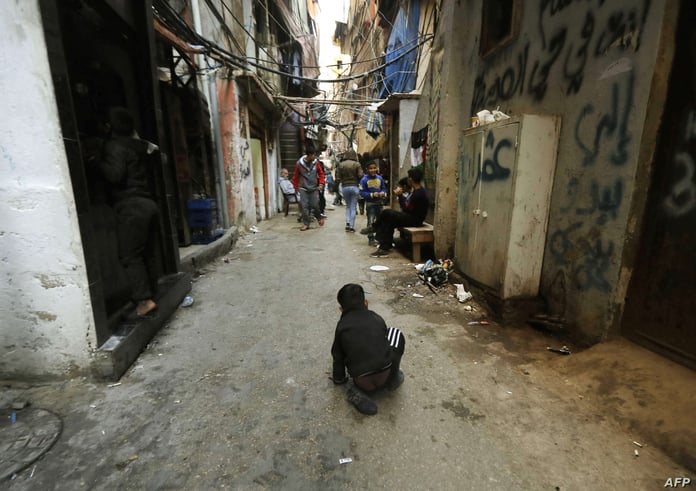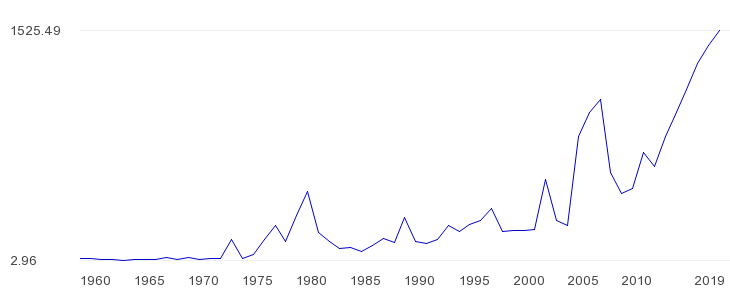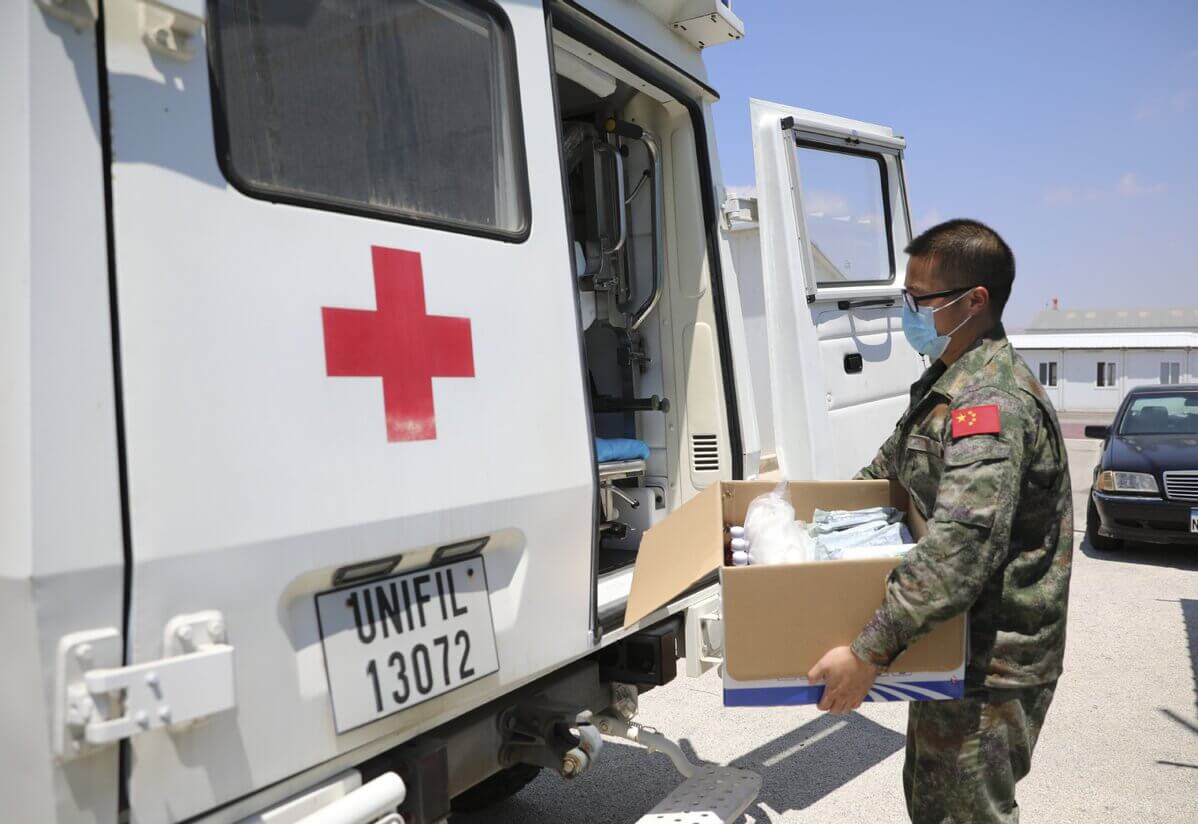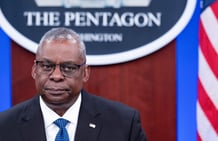
Lebanon ranked third in the world in terms of receiving funding and international humanitarian aid, after Syria and Yemen, according to a report issued by the “Crisis Monitor” of the American University of Beirut, which indicated an international trend to direct most aid towards humanitarian programs.
According to the report based on data from the United Nations Office for the Coordination of Humanitarian Affairs (OCHA), Lebanon received $1.6 billion during the past year, most of which were donated through humanitarian agencies and non-governmental organizations. At that time, Lebanon received $1.1 billion.
Lebanon receives 5.8 percent of the total humanitarian funding in the world, after Syria (9.6 percent) and Yemen (8.1 percent), yet it ranks first in the world in terms of the target per capita share of humanitarian funding, according to the Crisis Monitor report, which calculated The target groups are the poor Lebanese (1 million), Syrian refugees (1 million) and Palestinians (270,000), and this share is estimated at about $700 per person annually.
The submissions focused on three international donors who provided about 76.5 percent, according to the observatory, namely the United States, the European Commission and Germany. The majority of aid was directed to the Syrian Refugee Crisis Response Program in Lebanon, followed by the Corona Crisis Response Plan and the emergency assistance that was provided following the bombing of the Port of Beirut.
Three international organizations received 66 percent of humanitarian funding, namely the World Food Program (29.8 percent), UNHCR (25.2 percent) and UNICEF (10.9 percent). Funding was not limited to certain sectors, as the health sectors received $102 million, food security $76 million, and education $37 million. These programs are implemented by international organizations and non-governmental institutions in cooperation with official departments in specific sectors such as health and education, in addition to local authorities in some cases, according to the report.
15 years of missed opportunities
The supervisor of the observatory, Professor of Politics and Planning at the American University of Beirut, Nasser Yassin, says that “the aim of this report goes beyond reviewing the numbers and technical results contained in it, as it also contributes to highlighting the place Lebanon has reached in a decade and a half as a result of missing it.” Opportunities for reform were always available to him, as he has recently experienced a humanitarian emergency in various sectors, especially after the explosion of the port and the collapse of the lira and its purchasing power.

The report considers that the current reality of Lebanon is mostly the result of intertwined crises resulting in turn from a chronic political crisis, with which solutions are difficult and opportunities are professionalized, as the government is not serious about managing the crisis, the collapse of vital sectors accelerates and the disintegration of institutions, and the intractability of solutions and reforms has continued during the last two decades, especially since In 2007, when the Lebanese government committed itself to achieving a series of reforms in the work program of the “Paris III” conference, and successive governments did not implement most of them, and only a few of them came to light, especially with regard to public sector governance, the appointment of a public tenders regulatory body, and sector reform. Energy and the privatization of Electricite du Liban, in addition to increasing competitiveness, and creating a comprehensive social protection strategy with pension reform.
Because the Lebanese governments have not exploited these lost opportunities for more than 14 years, according to the Crisis Monitor, in addition to the lack of vision and the disintegration of institutions, as well as the Syrian refugee crisis, donors are turning to limiting the aid provided to Lebanon to international organizations and non-governmental organizations within the frameworks of humanitarian aid.
In his interview with an arabic newspaper, Yassin believes that “if the ‘Paris 3’ reforms had been implemented since 2007, we would be on a completely different path today, a development path and the recovery of the economy with sound frameworks, but instead the situation continued to deteriorate since then, and increased with the Arab shocks.” In 2011, especially the Syrian crisis, which increased the population of Lebanon dramatically and suddenly, which exacerbated the humanitarian needs in the country, until the matter reached the entire country in an emergency situation that needed humanitarian aid, while more than half of the population needed permanent aid, and all of that in a decade and a half from time”.
Banks don’t even provide aid
The report expects that humanitarian funding for Lebanon will increase in the coming years in light of the collapse of basic sectors such as health, education, and important services such as water, and as a result of the increasing weakness in official administrations, which prevents them from fulfilling their roles. Accordingly, he presents a number of technical steps that must be taken in order to make the best use of aid in light of the obstruction of the political horizon in the country and the failure of the reform process for more than 20 years.
At the top of the list of recommendations, the “Crisis Observatory” calls for the immediate cancellation of what it called “the heresy of the humanitarian dollar” launched by the Banque du Liban and some private banks, so that these institutions calculate the price of the aid dollar according to the “exchange platform”, which means that “a small part of the aid provided remains without Address a right in the banking system – both official and commercial – in a way that deprives recipients of aid from obtaining it.
Here, Yassin points out that, despite the annual per capita quota of $700, which is a relatively large number for humanitarian aid, “a quarter or a third of this amount is deducted by banks that deliver aid beneficiaries in Lebanese pounds, not dollars, and at an exchange rate much lower than the market traded price.” The black market, as it was initially delivered at a price of 6,500 Lebanese pounds, to rise to 12,000 pounds, according to the price of the Bank of Lebanon platform, while the price of the dollar crossed the threshold of 20 thousand pounds on the black market.
This deduction is done “on the head,” according to Yassin, and “in an illogical manner, as it is not possible to deduct from humanitarian aid, and it is a major part of the high per capita share of aid in Lebanon, in addition to the high cost of living in Lebanon relative to other countries benefiting from aid.” “.
Absolute transparency is the most important condition
Not only that, according to Yassin, “the high per capita share is also caused by the high costs of services and their disparity between sectors, especially the most expensive education and health, in addition to the high-cost administrative service in Lebanon, especially with the method of commitments through which aid arrives, and instead of It is from the donor to the beneficiaries directly. Today, it passes through two or three additional levels between international associations that obtain funding and provide grants to local associations working on related programs, and in turn, local bodies require implementation procedures.”

Accordingly, the observatory points out in its recommendations the importance of enhancing the local character of humanitarian aid in line with the decisions of the World Humanitarian Summit in Istanbul for 2016, by “making at least 25 percent of humanitarian funding for Lebanese organizations and bodies operating nationally or locally with the expansion of participation to include funding Grassroots associations operating in a local area, such as towns and urban neighborhoods.
The report concludes by stressing the importance of absolute transparency in the process of disbursing funds and selecting beneficiaries, as well as enhancing efficiency in implementation and developing frameworks for assessing the impact of humanitarian aid.













